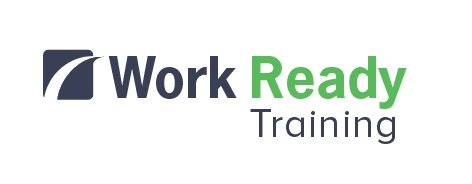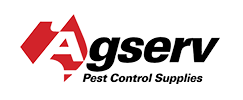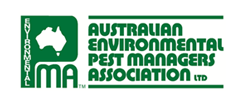Pest Technician Training Course
" The best thing about the course is that it is so user friendly and easy to understand.
I'd definitely recommend it!”
Chris - AMC Pest Control
" Fitting the course in between work was easy.
I could do it at my own pace and
in my own time.”
Kazwan - ICM Pest Control
Pest Technician Training Course
Why train with Work Ready Training?
Overview

Instructional videos, easy-to-understand diagrams and text make learning easy!
This course is split into several small modules. The modules contain useful, easy-to-understand information, demonstration videos and diagrams. You pass each module with a multiple-choice test.
Your trainer Keith Farrow has more than 35 years of experience. He is a science teacher and has taught pest management in both NSW and Queensland TAFE. Keith has been working in the pest control industry since 1980.

Put theory into practice. Get constructive criticism and assistance
We give you the chance to put this theory into practice with practical tasks. Submit these tasks to your instructor for review and assessment. Your trainer will give practical and fair advice to help you succeed.

Monthly tutorials give you a chance to interact with your trainer and other students
Your pest training course will also include monthly evening tutorials by our experienced trainers. These tutorials will focus on different topics. They give you a great opportunity to discuss any issues you may have with our trainers and other students.
Specifications
Course Type: LLN Required
Accredited: Yes
What you will learn:


Section 1: Manage pests without applying pesticides
This section of the course covers content from unit CPUPM3005. It is made up of 11 theory-based modules that cover the following:
- Work safety – What is required to work safely. We look at risks, ladders and personal protective equipment (PPE), as well as safety legislation.
- The biology and ecology of pests – Taking an in-depth look at cockroaches, ants, spiders, rodents, fleas, flies, birds, bees, wasps, bed bugs, mites, occasional invaders and stored product pests.
- Inspecting for pests – Inspections are a critical part of your job. You need different techniques to check for cockroaches, ants, spiders, rodents, fleas, birds, flies, bees, wasps, bed bugs, mites, occasional invaders and stored product pests.
- Modifying an environment to manage pests – This is a very handy skill to have. We focus on reducing reliance on pesticides. You will learn integrated pest management for common and uncommon pests.
- Spotting termites – This module will give you the knowledge required to recognise possible termite activity. This is advantageous knowledge to be equipped with and is looked upon favourably in the pest control industry.
- Paperwork – Paperwork and record-keeping are an essential part of the working day for pest managers. This module covers the basic documentation required for daily use by pest managers.
Through our studies in human learning, we have come to realise that theory is just as important as practical for the best learning outcomes. This course contains many practical tasks. You will need to demonstrate practising safety procedures and show you are confident climbing into and out of a roof void safely, as well as feeling confident climbing safely into a sub-floor. These will be day-to-day tasks in your life as a pest controller.


Section 2: Managing pests with pesticides
This is the largest section of the course and covers content from units CPUPM3005, CPUPM3006 and CPUPM3018. It is made up of seven theory modules that cover the following:
- Pesticides – In three very important modules you will learn about pesticides, how to handle them, their environmental impact, pesticide labels and pesticide safety data sheets. This is a section no pest controller should be without.
- Calculations – We take you through the types of calculations you will need to do every day to work out how much chemical application you need to treat an area.
- Pesticide application – You’ll learn about pesticide application and we will look at specific pests and how to manage them with pesticides – both common and uncommon.
- Applying pesticides to manage pests.
The practical tasks in this module will look over what we have learnt and give you an opportunity to show you have understood these things. You will be given three Work Order tasks, which will be real life work examples where you can showcase your abilities, and seven site assessment tasks. You will also need to submit your workplace supervisor Training on the Job checklist in this section.


Section 3: Maintaining equipment and chemical storage areas
Congratulations, you're almost there! This final section of the course covers the remainder of unit CPUPM3018. It contains one very important theory module, in which, you will learn everything you need to know about using your work vehicle, storing and maintaining chemicals and equipment so you can operate with the most effective pest management.
- Storing pesticides – This will cover storing and transporting chemicals. We will go through the legislations as well as the Australian Standards and industry Codes of Practice
- Your vehicle and chemical storage – How to handle chemical spills and what is required of your vehicle.
- Emergency Equipment – Let's not forget that you are working with chemicals and safety needs to be at the forefront of your attention.
- Pesticide inventory – Managing inventory is important for managing risks as well as knowing when to re-order.
- Equipment usage, inventory and cleaning – Here we talk everything from equipment maintenance to correctly cleaning and disposing of chemical containers and more
When you set out as a pest control operator, it is important to set yourself good standards to carry throughout your career. This module will help. The lessons in this module will set you up well if you ever want to own and run your own pest control business, with attention to the requirements of due diligence. Understand the record-keeping that comes with storing and transporting chemicals. Develop good habits that you will carry throughout your pest control career. In addition, we cover what to do if things go wrong when transporting chemicals.
In your practical tasks, you will demonstrate that you know how to deal with a chemical spill, clean and dispose of a chemical container safely and demonstrate that your vehicle complies with legislative and good practice requirements. Not only will this mean you will pass this course but it will give you the confidence you need to be of service to your clients.

I want to do this course – what next?
- Register with WRT.
- You will receive a link to a free Language, Literacy and Numeracy (LLN) test.
- Complete the LLN test (allow 20–30 minutes).
- We will email you with the results and the next steps in the enrolment process.
- Pay the course fee.
- Complete the induction (you will need to provide ID and a USI number as part of this process).
Important information
- You will need to find a licensed pest technician in your workplace who is willing to be your workplace supervisor. This is someone who will agree to officially oversee your training at work.
- To complete this program you will need to have (or have access to) some basic pest management equipment (see ‘Equipment’ tab above for additional information).
- This course does not include a one-day practical tutorial. However, you may be required to complete one at an additional cost of $500, if you do not demonstrate a satisfactory level of practical competency in the online practical tasks.
- This course is provided in partnership with the Registered Training Organisation, Rentokil Initial (RTO no. 40919), and your statement of attainment certificate will be issued by them. For more information on this please see the RTO Information tab above.
I want to enrol this course
Course prerequisites
There are certain requirements you MUST meet before you can enrol on our accredited courses. You must:
- Be over 18.
- Pass a Language Literacy and Numeracy (LLN) test.
- Provide a Unique Student Identifier (USI) number.
- Provide photographic proof of your identity.
Why do I need to do an LLN test?
An LLN is a short test that checks that you have the necessary level of English and maths to understand the course properly. Whilst we know that this is not an issue for you, it's a compliance thing for ASQUA.
Where can I do an LLN test?
- Register on Work Ready Training and you will be sent a link for an online LLN test.
- Complete the test (allow approximately 30 minutes).
- We will confirm your results.
Once you have passed the LLN test, you will be able to enrol on a course.
What is a USI and how do I get one?
You need a USI to enrol on a course and to receive your qualification or statement of attainment at the end of a course. USIs are obtained from the government and if you have completed vocational training before you may already have one. For more information on USIs, including how to apply for one, click here.
Smartphone
You will be required to film some of the exercises you do, so you will also need access to a video camera. We recommend you use your smartphone video camera.
Course Payment
We require payment in full to start the enrolment process. This can be paid by direct bank transfer, debit/credit card or PayPal. Contact us for a special discount offer on 1800 842 100.
Refund policy
Our refund policy is dependent on course component commencement. In all circumstances, the enrolment fee of $325 is non-refundable. Of the remaining course fee:
- No refund is available if we do not receive your written request within six months of your initial payment for the course.
- A full refund (less the enrolment fee) is available by giving written notice prior to starting a course. Online courses are considered to have been formally started once a student has completed the course induction section of a course.
- A refund is available by giving written notice prior to starting a component.
Theory components are considered to have been formally started once a student has started a theory module. Practical components are considered to have been formally started once a student has submitted a practical module.
Consideration will be given to hardship.
Course fee breakdown
Course fees for our Pest Technician Courses are made up of the following elements:
- Enrolment fee – $325 (non-refundable).
- Theory component – $575.
- Practical Component – $400.
If you have any queries about the course fees, payment or refunds, please call us on 1800 842 100.
I want to enrol this course
RTO Information
The RTO for this course is Rentokil Initial Pty Ltd (RTO no. 40919). Rentokil Initial issues the statements of attainment for this course.
What is an RTO?
An RTO or Registered Training Organisation is a training organisation which is registered by a State or Territory recognition authority to issue Australian Qualifications Framework qualifications and statements of attainment. Work Ready Training is not an RTO. This means that although we can provide training and assessment, we are not authorised to issue nationally recognised qualifications on our own. We partner with an industry leading RTO to provide you with your statement of ascertainment when you successfully complete your training with us.
Details about our RTO for this course
| Company: | Rentokil Initial Pty Ltd (Trading as Rentokil Pest Control) |
| Address: | PO Box 6786, Silverwater NSW 1811 |
| Phone: | 02 8719 6101 |
| ABN: | 98 000 034 597 |
| RTO no.: | 40919 |
For more information about RTOs, in general, please visit the ASQA website.



